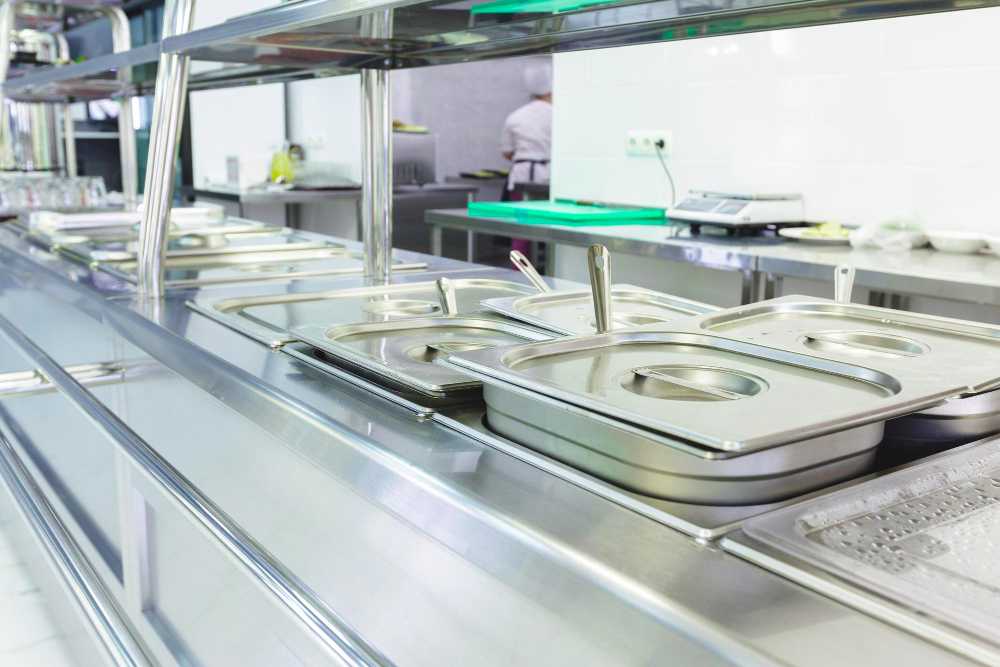Commercial kitchens face a unique set of challenges when it comes to sanitation, regulation, and pest pressures. Among the most persistent and harmful pests in food service settings is the cockroach. Without rigorous, targeted cockroach control, a small problem can quickly escalate into a regulatory violation, reputational damage, and health hazard.
Commercial kitchens often provide the perfect environment for cockroaches: warmth, moisture, food residue, and numerous hiding spaces. Because these facilities must comply with strict food safety standards, even a minor infestation can result in temporary closures or negative inspection reports. Cockroaches also carry harmful bacteria and allergens that threaten both food quality and public health.
The constant activity of kitchens with deliveries, cooking, and cleaning cycles creates ongoing opportunities for pests to survive and spread. This is why simple pest treatments are not enough. Instead, kitchens require targeted, strategic programs that address the specific environmental and operational risks unique to food service facilities.

Vulnerabilities in Commercial Kitchen Environments
Commercial kitchens naturally create several conditions that favor cockroach survival. Understanding these weak points helps owners and managers stay ahead of potential infestations.
- Abundant food sources: Food particles, crumbs, and grease buildup under appliances provide a steady diet.
- Moisture and humidity: Leaky plumbing, dishwashers, and steam lines create constant dampness.
- Hidden harborage areas: Wall gaps, floor drains, and hollow equipment legs give cockroaches safe, undisturbed shelters.
- Frequent activity: Delivery trucks, staff movement, and open doors increase opportunities for pest entry.
Each of these factors contributes to an environment where cockroaches can thrive unnoticed. Identifying and addressing these vulnerabilities is the foundation of effective pest prevention and management.
Components of Targeted Cockroach Control
A successful program for commercial kitchens combines sanitation, exclusion, monitoring, and precise treatments to deliver long-term protection. The focus must be on targeting every stage of the cockroach life cycle while minimizing disruption to operations.
- Sanitation and waste management
Regular cleaning removes the organic matter cockroaches feed on. Trash bins must be sealed, floors scrubbed daily, and grease traps cleaned on schedule. - Harborage elimination
Seal wall cracks, repair baseboards, and caulk spaces around pipes and conduits. Move and clean under heavy appliances to prevent buildup. - Physical barriers
Use door sweeps, mesh screens, and sealed thresholds to block entry. Fix floor drain covers and check air vents for small gaps. - Targeted insecticidal applications
Professionals apply gel baits, dusts, or residual sprays directly into cracks and voids to eliminate breeding sites. - Consistent inspections
Monitoring traps and regular evaluations help verify control success and highlight new risk areas.
When designed properly, these measures reflect the same principles found in eco-friendly pest control, which promotes safety, sustainability, and precision in all treatment processes.
Monitoring and Inspection Best Practices
Monitoring and inspection serve as the backbone of sustainable cockroach management. They allow kitchen managers to detect early signs of infestation before they spread to food preparation or serving zones.
- Position sticky traps near appliances, baseboards, drains, and behind refrigerators.
- Check traps regularly and record the number and location of catches.
- Inspect under sinks, storage racks, and electrical panels for egg casings or droppings.
- Track humidity and temperature in areas where cockroaches are likely to breed.
- Review inspection logs weekly and make adjustments based on activity trends.
Effective monitoring builds a detailed understanding of where cockroaches are entering and nesting. This information helps tailor control strategies to your specific layout and risk level, aligning with comprehensive pest management practices similar to those outlined in integrated pest management.
The Role of Preventive Maintenance
Preventive maintenance is often the most overlooked aspect of cockroach control, yet it delivers the greatest long-term benefits. Prevention involves maintaining clean conditions, eliminating attractants, and reinforcing barriers before infestations take hold.
Regular inspections by trained personnel ensure early detection. Kitchen staff can also be trained to recognize signs of activity, such as droppings, odor, or sightings near drains. Moisture control plays a major role as well by fixing leaks, drying wet surfaces, and ventilating crawlspaces to keep humidity too low for cockroach survival.
Preventive measures extend to storage areas and delivery zones. Sealing cracks around doors and foundations, inspecting incoming food shipments, and rotating inventory reduce the likelihood of introducing new pests. The goal is to make the kitchen uninviting to insects by continuously managing both structural and environmental factors.
With an organized maintenance program in place, pest control becomes a proactive, predictable part of overall kitchen operations instead of a reactive response to an emergency.
When to Seek Professional Help
Even the most disciplined cleaning and maintenance program cannot reach every hidden pocket of activity. Cockroaches are extremely resilient, and infestations can persist inside walls, electrical systems, and equipment motors. When populations increase or sightings occur during the day, it is time for professional intervention.
Experts use specialized tools and advanced formulations to target colonies precisely and safely. Professional technicians can also perform in-depth structural assessments, identifying hidden vulnerabilities that may not be visible during routine inspections.
Hiring an experienced pest management provider ensures consistent protection and compliance with food safety regulations. It also provides peace of mind that your facility is protected against recurring infestations and costly health code violations.
Protect Your Kitchen’s Reputation and Safety
In a high-demand commercial kitchen, maintaining pest-free conditions is critical for both safety and success. Professional cockroach control prevents contamination, protects your reputation, and supports long-term compliance with food safety standards. Contact EcoGen Pest Control today to schedule a professional kitchen inspection and receive a customized solution that keeps your workspace clean, efficient, and pest-free.



